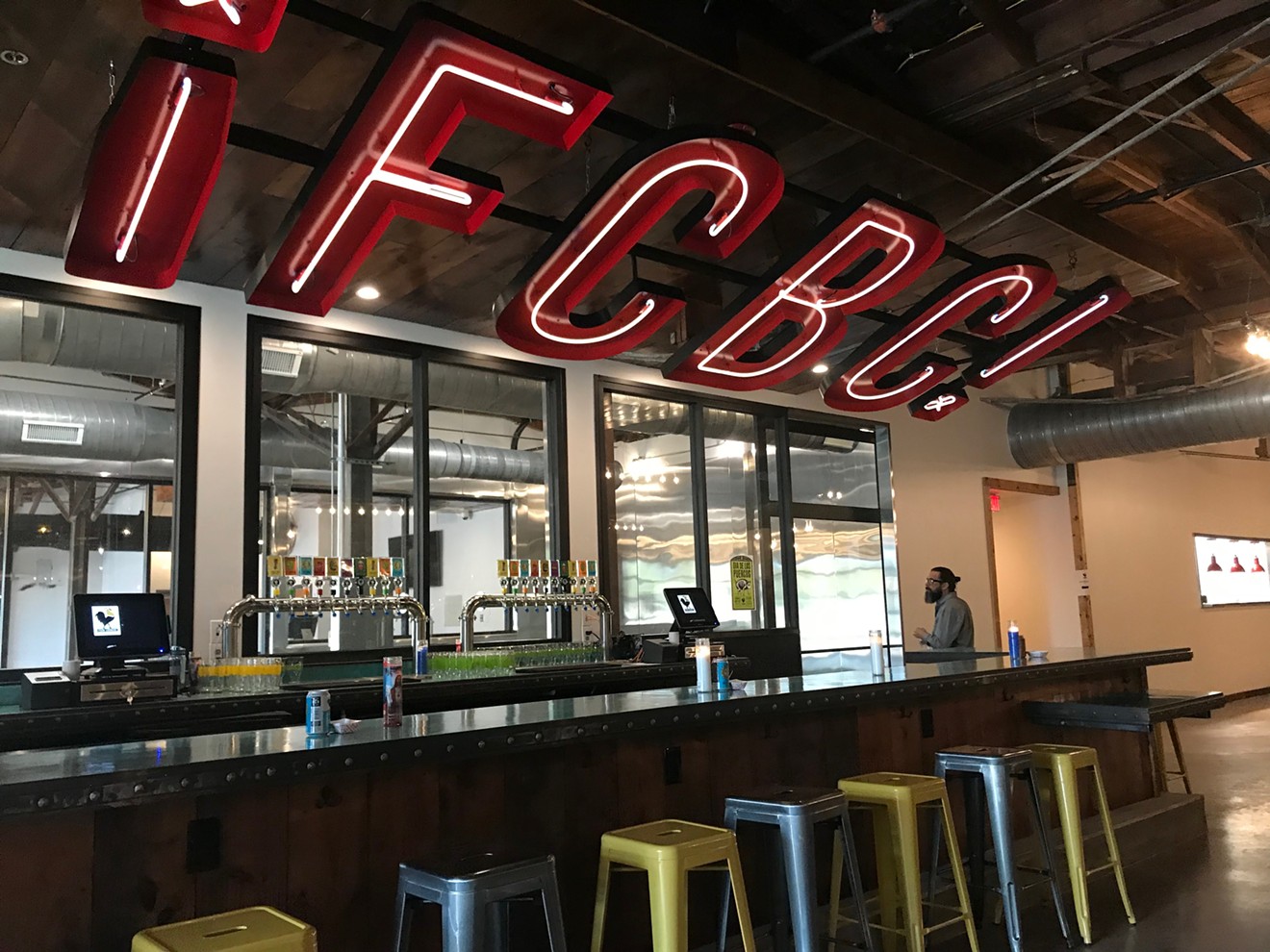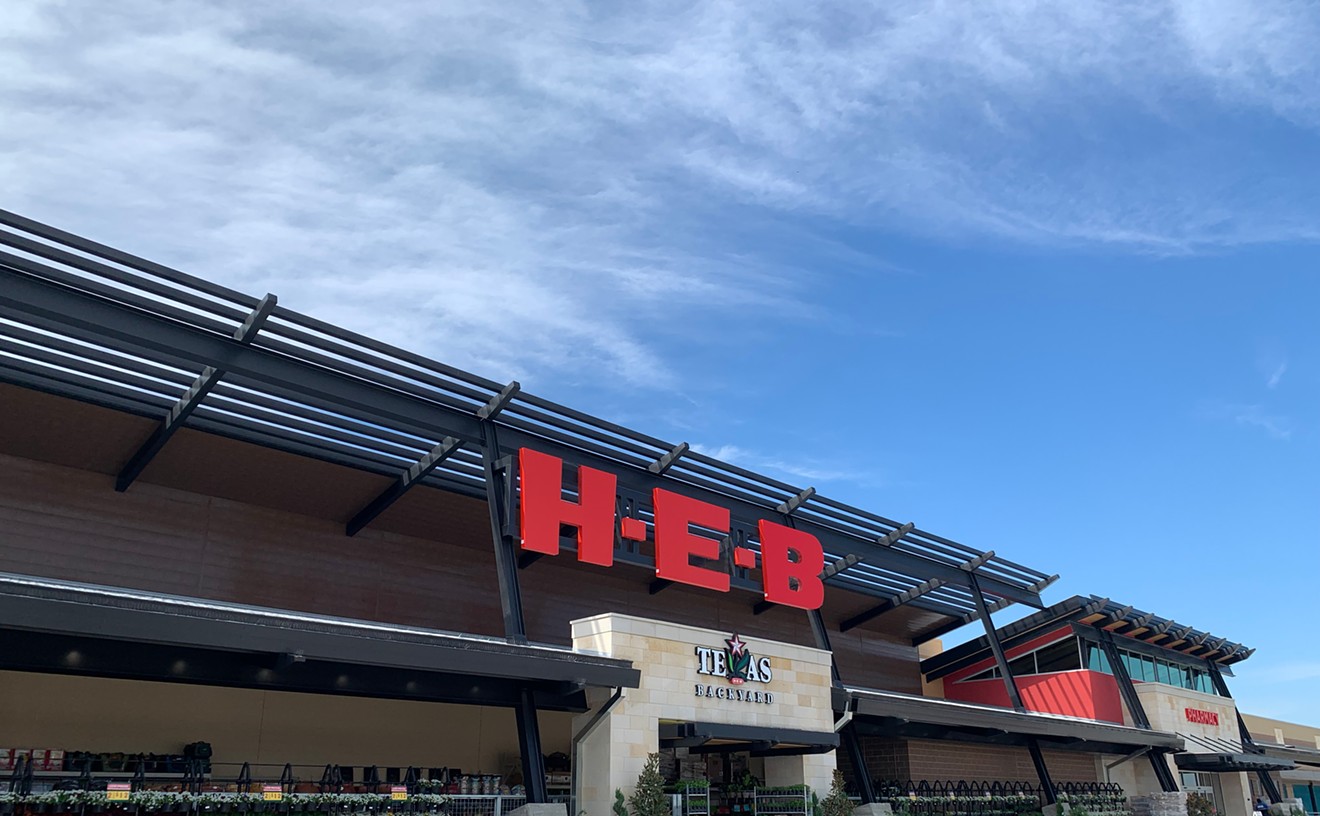In Texas, wineries, distilleries and brewpubs can sell bottles to go, but production breweries cannot. And prominent Dallas bar owner Shannon Wynne, creator of the Flying Saucer, Rodeo Goat and the Meddlesome Moth, warns in a new editorial for the Texas Tribune’s TribTalk site that if production breweries are finally allowed to sell beer to go, the result will be a bar-pocalypse. Brewery taprooms would have such an advantage, he says, that they “would force any other retailer to shut down.”
Wynne’s primary complaint is that the Austin location of his popular Flying Saucer chain closed on Jan. 1, 2018, due to falling profits. Currently 15 other Flying Saucer locations remain open, seven of them in Texas. In interviews with Austin-based news outlets in December 2017, Wynne cited breweries’ ability to open taprooms as the direct cause of the Austin Saucer’s closure. He also called the state law allowing the existence of taprooms “topsy-turvy.”
The new TribTalk editorial goes into more detail, but almost every detail is factually or logically wayward.
Let’s start with the most basic problems in Wynne’s argument. He has not been fact-checked: Wynne refers to newly proposed brewery legislation like “Senate Bill 392” — but that bill actually relates to discipline for misbehaving school children.
Wynne credits Texas’ unique “three-tiered” alcohol sales model — producers, distributors, sellers — with helping to make our state “one of the most diverse and saturated craft beer markets in the world.” That sounds great, but CraftPAC, the craft breweries’ lobbying group, says Texas ranks 46th in the United States for production breweries per capita — 1.1 craft production breweries for every 100,000 drinking-age adults. A national study found a slightly different number, but also found that Iowa, Nebraska and South Dakota have more than double Texas’ breweries per capita.
Wynne’s claim that breweries killed the Flying Saucer’s Austin location is also dubious. I can think of more likely factors: Rent in central Austin is on the rise; Flying Saucer feels like a corporatized chain; its tap lists skew heavily out-of-state, with especially strong representation of Colorado and Oregon; the chain hasn’t kept up with Texas beer trends; female staff are forced to wear short skirts, like a Twin Peaks with a veneer of respectability; and, well, other bars are better, especially for the kind of ultra-local brews which Wynne claims to support.
The Texas State House is considering a bipartisan bill to legalize small breweries selling their own products to go. The bill, HB672, is very simple. It just adds the phrase “or for off-premises consumption” to a number of clauses in the current regulation for small-to-medium-sized craft breweries.
Wynne, however, tries to cast confusion by distorting the law’s intent. He says the bill “would allow mega-breweries like Anheuser-Busch or MillerCoors to gobble up any small brewery in Texas and sell major brands directly to the public.” But the current law says that beer sold in taprooms must be brewed on the premises. In other words, MillerCoors might own Revolver, but it’s illegal for Revolver to pour Miller High Life. Either Wynne doesn’t know the law, or he doesn’t want us to know the law.
There is a lot of up-is-down-and-down-is-up talk in Wynne’s anti-taproom argument. For instance, he claims that allowing small breweries to open taprooms is a “new carve-out”; for years, the small business owners have been saying that the distributors’ slice of the trade is the real carve-out. Has Wynne ever considered focusing his discontent as an alcohol seller on the middlemen who stand between him and the producers?

Four Corners' shiny new taproom may be owned by Constellation Brands now, but it legally cannot sell you a Corona.
Beth Rankin
He says small breweries want to sell their beer to go “to give big fish a bigger advantage,” implying that four or five bearded nerds in a suburban warehouse are the big fish and a 15-location multi-state bar chain is the at-risk small fry. Yes, it is true that taprooms can sell beer without the added costs that bars face, like those incurred by the distribution system. But if Wynne thinks Dallas bars are lonely places now that taprooms exist, he’s going to the wrong bars. We just spent $70 million on drinks in February, or about $52 for every human being living in the city.
The only fear I share with Wynne is that big out-of-state manufacturers like MillerCoors will continue to swoop in and buy up Texas breweries. They’ve already swallowed up Revolver, Karbach and Four Corners. More will surely follow.
But the new bill won’t change that dynamic at all. Four Corners and Corona Light may share an owner, but selling Corona in the Four Corners taproom is illegal. And if we’re really that scared of what could happen to our local bar scene, maybe we could look across state lines to see what happens when craft breweries are allowed to sell beer to go. Will bars go extinct? Will we see, as Wynne fears, “new monopolies sprouting up overnight”?
No. The other 49 states already have beer-to-go laws, and they’re doing just fine. Wynne’s problem is not that tiny taprooms selling their own products compete with his multi-state bars and restaurants. His problem is that he is starkly disconnected from the beer lovers he wants to serve.
Editor’s note: The originally published version of this story contained an incorrect tally of the numbers of brewpub and brewery licenses in Texas. We’ve updated the story to remove the error.












